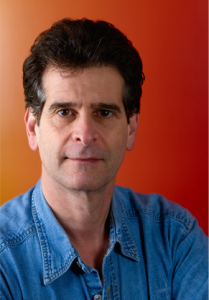We publish, in its entirety, a recent press release from the Manchester School District regarding the Junior STEAM ahead program recently launched in conjunction with FIRST for all fourth grade students. ~ Publis
 195 McGregor Street, Suite 201, Manchester, NH 03102
195 McGregor Street, Suite 201, Manchester, NH 03102
Telephone: 603.624.6300 • Fax: 603.624.6337
FOR IMMEDIATE RELEASE Contact: Andrea Alley
October 14, 2014 603-493-8893
Schools receive science and technology boost
Collaboration with FIRST® is one-of-a-kind
MANCHESTER, N.H. – An international not-for-profit public charity that motivates young people to pursue education and career opportunities in science, technology, engineering, art, and math (STEAM) has committed to help enhance those subjects for every fourth grade student in Manchester. FIRST® (For Inspiration and Recognition of Science and Technology) has been encouraging young people’s interest and participation in science and technology for more than 25 years. The organization was founded by inventor Dean Kamen in 1989 to inspire young people’s interest and participation in science and technology. The city’s elementary schools now have a unique opportunity to bring the popular FIRST® LEGO® League (FLL®) program into their classrooms.
“FIRST is the expert in project-based learning, and it’s in our own backyard,” said Mayor Ted Gatsas. “This collaboration will give all of our young fourth graders across the city the confidence to participate, learn and compete.”
The school district is calling the collaboration “Junior STEAM Ahead,” a reference to “STEAM Ahead,” a secondary-level program at West High School which focuses on science, technology, engineering, arts and math curriculum through similar business and higher education partnerships.
The implementation plan for Junior STEAM Ahead will begin with three schools, Beech Street, Green Acres and Jewett Street. In 2015, four more schools will be added, and the remaining elementary schools in the city will participate starting in the 2016-17 school year.
“We asked every elementary school to submit a proposal and apply to the program for this pilot year,” said Dr. Debra Livingston, superintendent of schools. “We chose three schools this round, but all of our fourth grade teachers and principals are eager to explore the learning opportunities the program will provide.”
As part of the Junior STEAM Ahead program, each fourth grade classroom will participate in FIRST LEGO League with teams of six students. They will design, build, and program robots using LEGO® MINDSTORMS® and other LEGO® elements. The lessons involve applying math and science concepts, as well as learning critical thinking, team-building and presentation skills.
The 2014/2015 FIRST® LEGO®League (FLL®) season will task students with exploring the future of learning as part of a new Challenge called FLL WORLD CLASSSM. More than 260,000 children in nearly 80 countries will teach adults about the ways that kids need and want to learn in the 21st century, and will develop their own innovative tools to help others gather knowledge as part of the FLL season Challenge.
“This is project-based learning at its best,” said Donald E. Bossi, President of FIRST. “What separates us from traditional science fairs and textbook learning is that the kids who participate attack real-world challenges and invent the solutions.”
Another aspect of the program collaboration is a visit to the SEE Science Center in Manchester. Every year, all 14 elementary schools will bring their fourth grade students on a field trip, at no cost to the school district. FIRST is paying for the transportation, and SEE Science Center is waiving the admission fees.
“SEE Science Center is a wonderful resource to introduce children to the idea that science and technology are relevant in the real world and everyday life,” said Dr. Livingston. “We are grateful to FIRST for the opportunity to give our students that experience and ignite the excitement they can bring back to the classroom.”
Fourth grade teachers in Manchester also will receive FIRST LEGO League training and learn how to implement the program into the school day. A full day workshop was hosted by FIRST in September at SEE Science Center; additional training for Manchester teachers will be scheduled later this fall.
###





Interesting. As I understand this, FIRST is an after-school or supplement to what the school is/should be providing?
I bring this up because IF Project Based Learning is the focus of science instruction in the classroom, I’d want to see independent studies that show it improves academic achievement.
There is a great deal of academic content to learn in the subject of science. If this is going to enhance learning outside the classroom, I can certainly see the value in it. I’d just want to make sure the academic content was covered and learned first. The Core Knowledge Scope and Sequence in Science lays out what should be covered in each grade and is a wonderful source for parents to make sure their kids are receiving a first quality science education.
FIRST as a supplement seems to focus on making science fun and interesting. In addition, it looks like it can also cover some of the academic content too.
I think parents need to make sure the academic content if covered and learned first. If that is being done successfully, this certainly sounds like it can be a wonderful addition to learning science.
Core Knowledge Scope and Sequence: http://www.coreknowledge.org/mimik/mimik_uploads/documents/480/CKFSequence_Rev.pdf
Structure More Effective In High School Science Classes, Study Reveals
http://www.sciencedaily.com/releases/2009/03/090326114415.htm